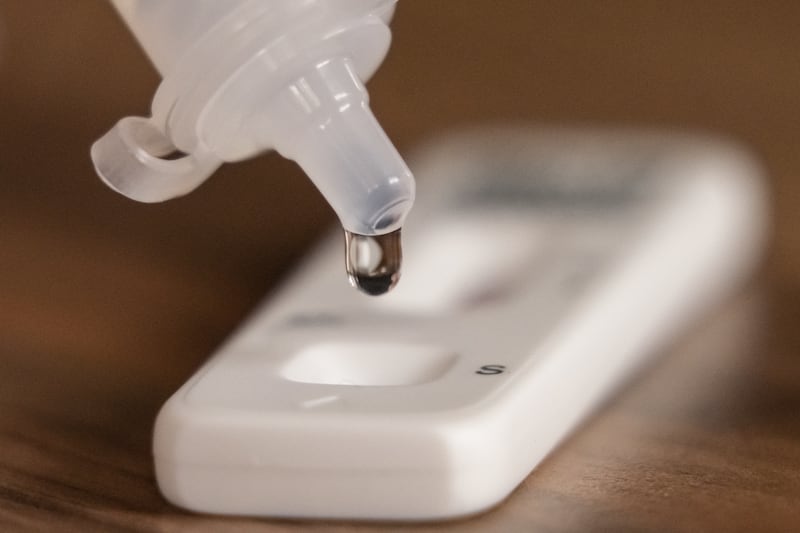How it was: around 40 young, male students crammed into one poky room, staring and shouting at a small screen. All annoyed at the thought of having to carry an ID card.
How it may be: a few thousand over-50s, men and women, scattered around a massive stadium, perhaps scared to raise their voices in response to the action unfolding far in front of them. All having agreed to carry a passport of sorts just to get into the ground.
The first scenario was how I watched televised Sunday soccer when I first went to university in England many moons ago.
It was actually close to the real match-day experience: little room to move, a poor view for the vertically challenged, no toilets or decent food facilities, and the ever-present threat of violence. Yet it was fun too.
The second paragraph above relates to the none-too-enticing prospect for supporters to attend matches in the UK over the next few months.
Of course, allowing some spectators into an event is better than none – but that's not saying much: even watching magnolia paint dry is better than watching sport with no fans.
The question is whether there will be any real value in the British government's 'Covid status certification' scheme (beyond the money that can be made by companies who just happen to be linked to Tory MPs selling all the testing products, of course).
The reception from the British public to the latest scheme will be interesting.
Probably the loudest roar of celebration heard in that little university TV room wasn't occasioned by a goal or a final whistle to mark a famous victory. Although in a way that latter phrase is accurate.
Instead it greeted the announcement that the proposed ID card scheme for football supporters, pushed so strongly by the Thatcher government, had finally been rejected.
Lord Justice Taylor, the esteemed author of the report into the Hillsborough Stadium Disaster, dismissed ID cards as being of any use in making football safer for supporters.
Ordinary football fans had campaigned strongly against them, partly because they would have made it difficult for casual, occasional fans to go to matches. The threat to civil liberties was another adverse element for some.
Probably some of those young men from my university days, who were so opposed to ID cards, so happy to have them rejected, will already have had their second jab. Maybe they'll be content to go through the rigmarole of getting 'Covid status certification' in order to be able to watch their team live again.
More importantly than that, though, will people be honest enough to admit if they've tested positive, which would rule them out of going to a game?
Or will they blame all too believable delays in the testing processes and just head to the stadium with their friends?
Ironically, today's students may well be glad to have an ID card as they'll be the least likely to receive 'Covid status certification' at least by means of having had sufficient vaccinations. The alternative is for them to have caught and recovered from Covid in the past six months, so that they have antibodies in their system, and that may be much more probable.
Yet the whole idea of 'Covid passports' may be rather unnecessary anyway, at least as regards sport in stadia.
Once again scientific experts have suggested that the risk of catching Covid is 19 times greater indoors rather than outdoors.
Indeed, Ireland's Health Protection Surveillance Centre determined that only around one in a thousand of the more than 230,000 confirmed cases in the country had definitely been the result of outdoor transmission.
That's 0.1 per cent. Most sports fans like to take a gamble anyway but they'd certainly be happy with those odds.
And only half of those cases were associated with sporting or fitness activities, with the rest linked to the construction industry.
University of Canterbury Professor Mike Weed looked at 27,000 Covid-19 cases and determined that the number of positive cases linked to transmission of the virus outdoors was "so small as to be insignificant".
His conclusion was that "in many sectors, and for many sizes and formats, it should be possible to put appropriate evidence-based mitigations in place to deliver outdoor events and activities in a way that does not escalate the risk from sporadic transmission to cluster outbreak."
Indeed, as sports people have argued for some time, the real risk is around what happens indoors, either at stadia or before going to the game. In changing rooms, cars, buses, and toilets, not in the actual grounds.
The Irish Times quoted University College Dublin's school of architecture Professor Orla Hegarty, stating that transmission risk outdoors is low "if people keep physical distance, avoid close conversation and take great care that shared transport and shared toilets are very well-ventilated – and that they stay a very short time and wear masks in them."
She added that: "The risk of infection is low outdoors because unless you are up close to someone infected, most of the virus will likely be blown away and diluted in the breeze, like cigarette smoke."
Of course, there are caveats within those comments. Smoke is visible, for starters.
Will spectators keep physical distance? Or will they congregate with people they may not have seen for a long time?
Will they avoid close conversation? Or will they encroach on personal space the way so many people still do, in order to discuss the performances of the players and the match officials?
Will they take great care that shared transport and shared toilets are very well-ventilated? Or will they prefer to stay warm in the April snows and keep the window closed?
It does seem somewhat strange that the World Snooker Championship at the Crucible Theatre in Sheffield – running from April 17 to May 3 – is the first sporting event to be included in the British trial and will have 1,000 spectators per day.
I don't profess to be a snooker expert, but it's not an open-air game as far as I'm aware. Snow can certainly do damage to baize.
Joking aside, opening stadia to supporters again is a (minimal) risk surely worth taking, more so than letting people back into theatres of any kind.
And once again ID cards shouldn't be needed.







